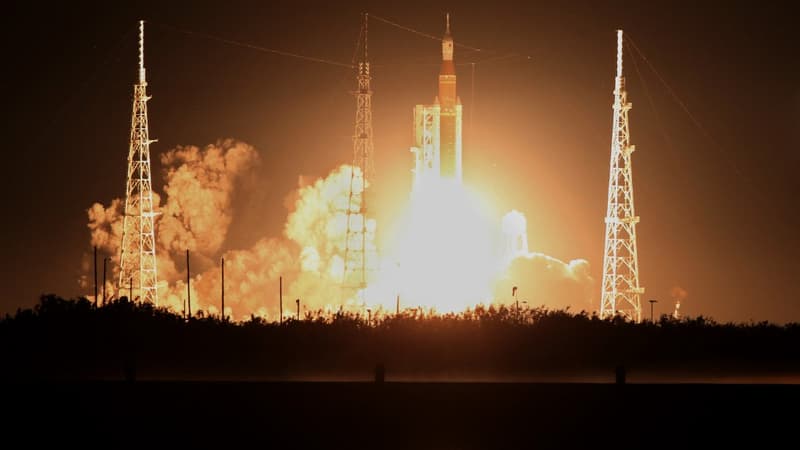The Artemis 2 space mission, which will take a crew of astronauts to the moon for the first time since 1972, is scheduled for November 2024, NASA announced Tuesday.
This timeline is made possible by the success of the Artemis 1 mission, which ended in December after just over 25 days in space. The Orion spacecraft, which had no one on board for this first test flight, had been propelled by the new SLS rocket – the most powerful in the world – and had successfully entered orbit around the Moon, before returning to the earth.
Detailed analysis of this mission continues, Jim Free, NASA associate administrator, said at a news conference. But the first feedback should allow the second Artemis mission to take off by “late November 2024,” he said. Or in more than a year and a half.
The return to the lunar surface is still planned for 2025
NASA must announce this year the four lucky winners who will form the Artemis 2 crew. We only know that a Canadian will be part of it. They will go around the Moon – without landing there – during a ten-day mission.
Next will come Artemis 3, which is to carry astronauts to the lunar surface. Officially it is still scheduled for 2025, although this calendar could not be more uncertain.
“We’ve always planned for about 12 months” between Artemis 2 and 3, Jim Free repeated Tuesday. But he immediately pointed out that the third mission would be on hold until many of the much-needed elements currently in development were finalized.
“We need a lander” and “we will need to have our ‘space suits’ for lunar surface exploration,” Jim Free said.
Objective: a sustainable presence on the natural satellite
The lander will be a version of SpaceX’s Starship, but whose first orbital flight has not yet taken place. Space suits are developed by the Axiom Space company.
The Artemis program is to send the first woman and the first person of color to the Moon, when the Apollo program landed 12 men, all white. Artemis, in Greek mythology, is the twin sister of Apollo (Apollo in English) and a goddess associated with the Moon.
NASA’s goal is to establish a lasting presence on the Moon, building a base on its surface and a space station in orbit around it.
Learning to live on the Moon should allow testing all the technologies necessary for an even more complex journey: the round trip of a crew to Mars.
Source: BFM TV


